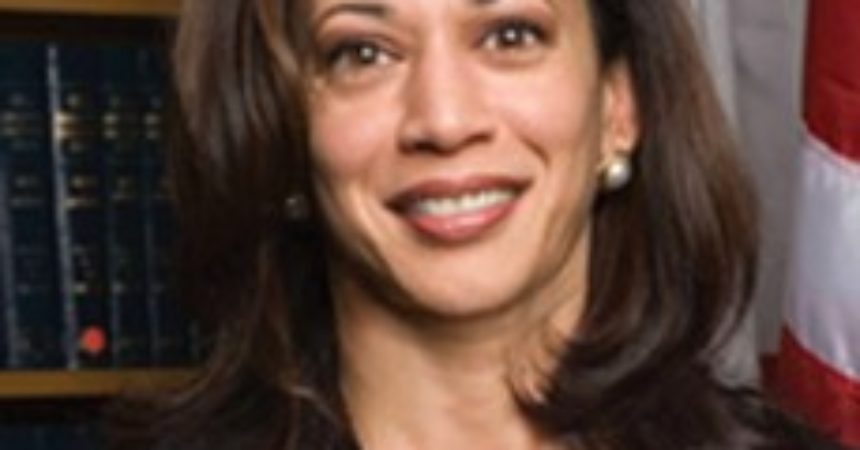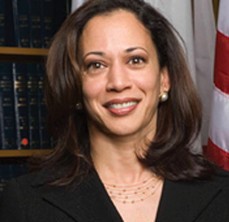
Kamala Harris sets the tone in her first interview since Biden’s VP announcement
By Katherine C. Gilyard
Howard University News Service
Special to Trice Edney News Wire
Sen. Kamala Harris discussed the power and importance of electing the right person in November in her first interview after Joe Biden’s long-awaited announcement that she would be his running mate in the 2020 presidential race.
“I fear that if we don’t correct course, the damage will be irreversible,” Harris said during an interview with Errin Haines, editor-at-large of 19thnews.org. “Everything is on the line in this election.
“This is probably one of the most important elections in our lifetime. This is a battle for the soul of our country.
“When we look at someone like the current occupant in the White House again, he has not been lifting folks up. The strength of a leader is not based on who you beat down, but who you lift up. And these are the things that are at stake right now.”
The California senator recently participated in the closing keynote conversation during “The 19th Represents: 2020 Virtual Summit.” The 19th is a nonprofit newsroom named for the U.S. constitutional amendment that granted White women the right to vote a century ago in 1919. It wouldn’t be until 1965 when the Voting Rights Act was passed that everyone — regardless of sex, socioeconomic status or color — would gain the right to vote.
During the talk, Harris shared insights from her tenure on the crowded campaign trail as a Democratic presidential candidate, until Biden’s historic announcement.
She also reflected on her time with the other female candidates, many of whom she’d worked alongside for many years. “We weren’t in competition with each other,” Harris said. “We knew we were representing a picture of what the country is and should be moving forward.”

— Sen. Kamala Harris
Harris, an Oakland, Calif., native, is the daughter of Indian and Jamaican immigrants. This makes her the first Black, Asian-American and woman on a presidential election ticket for a major political party, but she sees her selection as “a statement of affirmation.”
“I am not unique,” she explains. “There are a lot of people like me.”
While never missing an opportunity to speak about the Biden-Harris ticket, she highlighted the presidential hopeful’s courage in selecting her and what it means for the future of the country.
“Joe Biden had the audacity to choose a Black woman to be his running mate,” Harris said. “How incredible is that? And what a statement that says about Joe Biden. That he decided that he was going to do that thing that was about breaking one of the most substantial barriers that have existed in our country and that he made that decision with whatever risks that brings.
“I think as much as anything, it’s a statement about the man that we’re going to elect as the next president of the United States.”
Harris also discussed what it would take to motivate Black women to vote. “When you have one ticket that can say #BlackLivesMatter, and another who has been full time sowing hate and division in our country, those are the things that are going to motivate Black women to vote.
“You don’t want to have any false modesty about a Black woman being on the ticket, but it takes more than just that to motivate Black women to vote. People have to speak to their issues, and the Biden-Harris ticket does that.”
She also acknowledged the challenge of voter suppression and other obstacles. In a recent poll by the Pew Research Center, Black voters were less likely to say that voting would be easy: 35 percent for African Americans compared to 53 percent of White voters.
“There are states and there are state legislatures who, especially after the Supreme Court gutted the Voting Rights Act, have put in place laws that have been designed to suppress the vote — in particular the Black vote, [to keep] students from voting, indigenous people from voting,” Harris said. “Some of them we’re going to fight against and get rid of before the election; some of them are still going to be in place.
“We know how to get around the obstacles that for many of us have been in place since we were born. And that’s going to be the job ahead of us.”
To work around obstacles, Black women are working through organizations such as Black Voters Matter, Higher Heights for America and Fair Fight, founded by Stacey Abrams, a fellow speaker for “The 19th Represents,” who ran for governor of Georgia and was also a contender as Biden’s running mate.
Challenges include the difficulty of voting during the coronavirus pandemic and President Trump’s threats to weaken the U.S. Postal Service in light of his fears about mail-in ballots.
According to a Pew survey conducted between July 27 and Aug. 2, 37 percent of Black registered voters prefer to cast their ballots by mail for the general election in November; 33 percent in person on Election Day; and 25 percent in person at early-voting locations. Five percent said that they didn’t plan to vote.
In her closing remarks, Harris posed questions to the audience: “Why don’t they want us to vote? Why are they creating obstacles to us voting?”
“Well, the answer is, because when we vote, things change. When we vote, things get better. When we vote, we address the disparities we’ve been talking about. We address the need of all people to be treated with dignity and respect. These are the things that are on the line in this election.”







